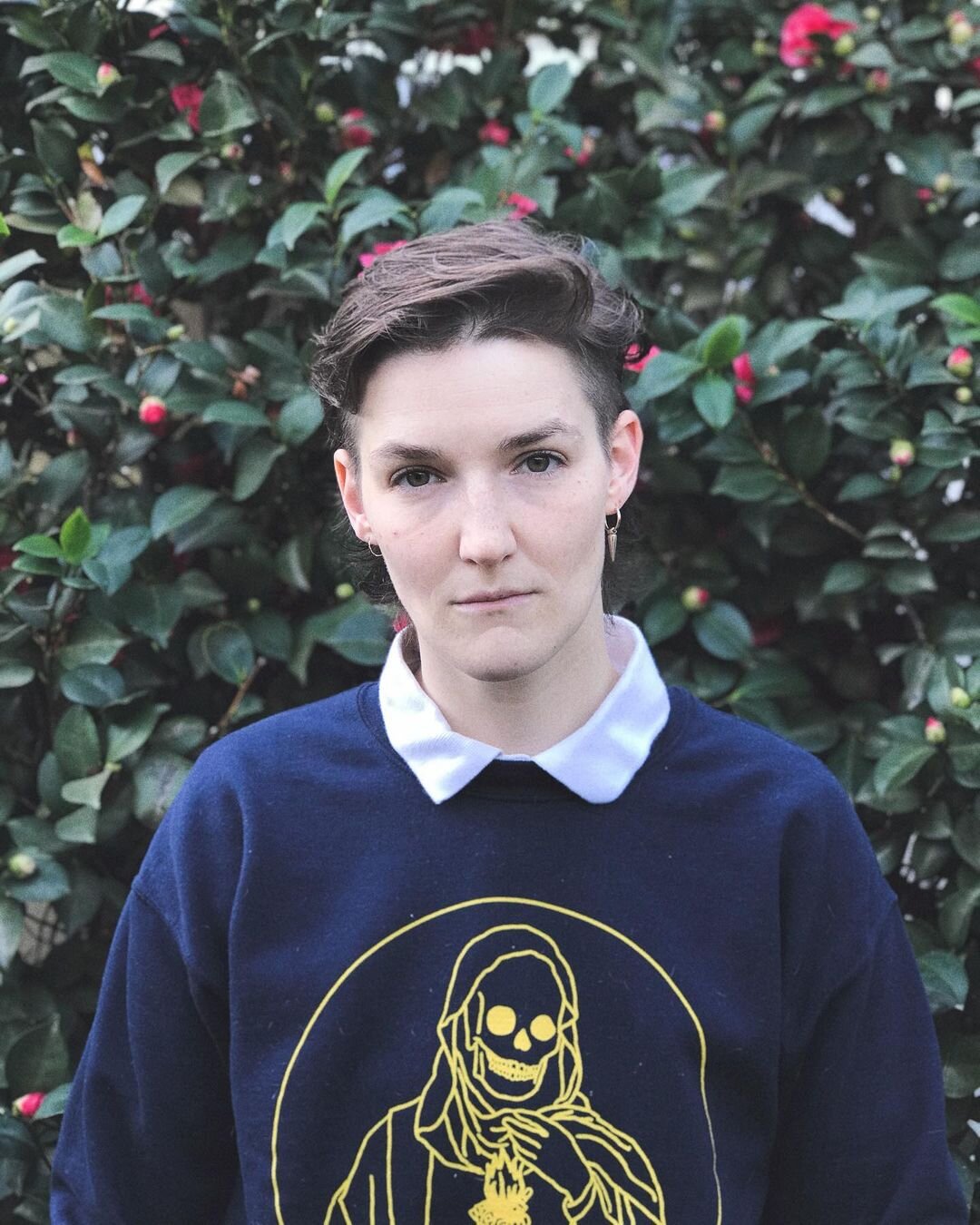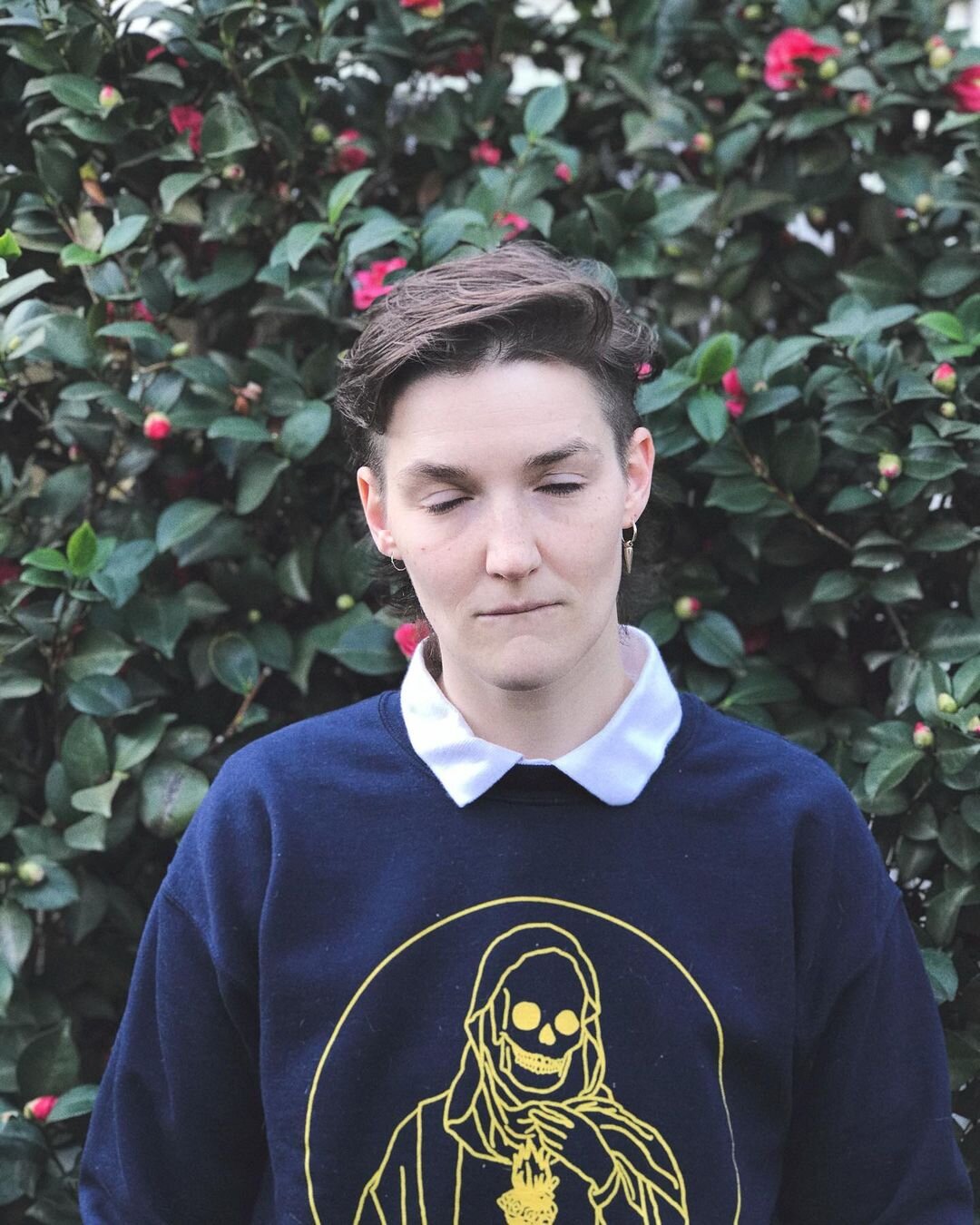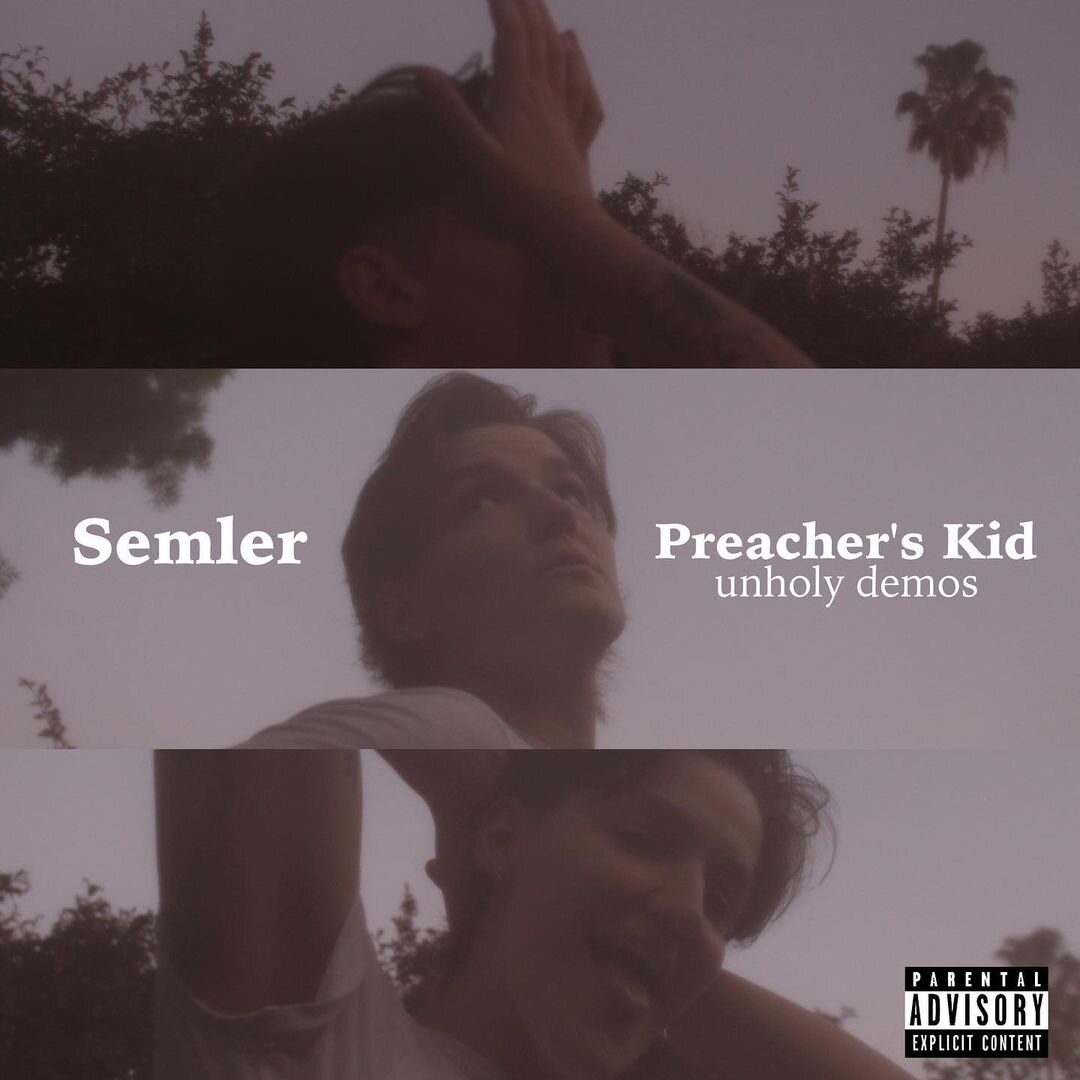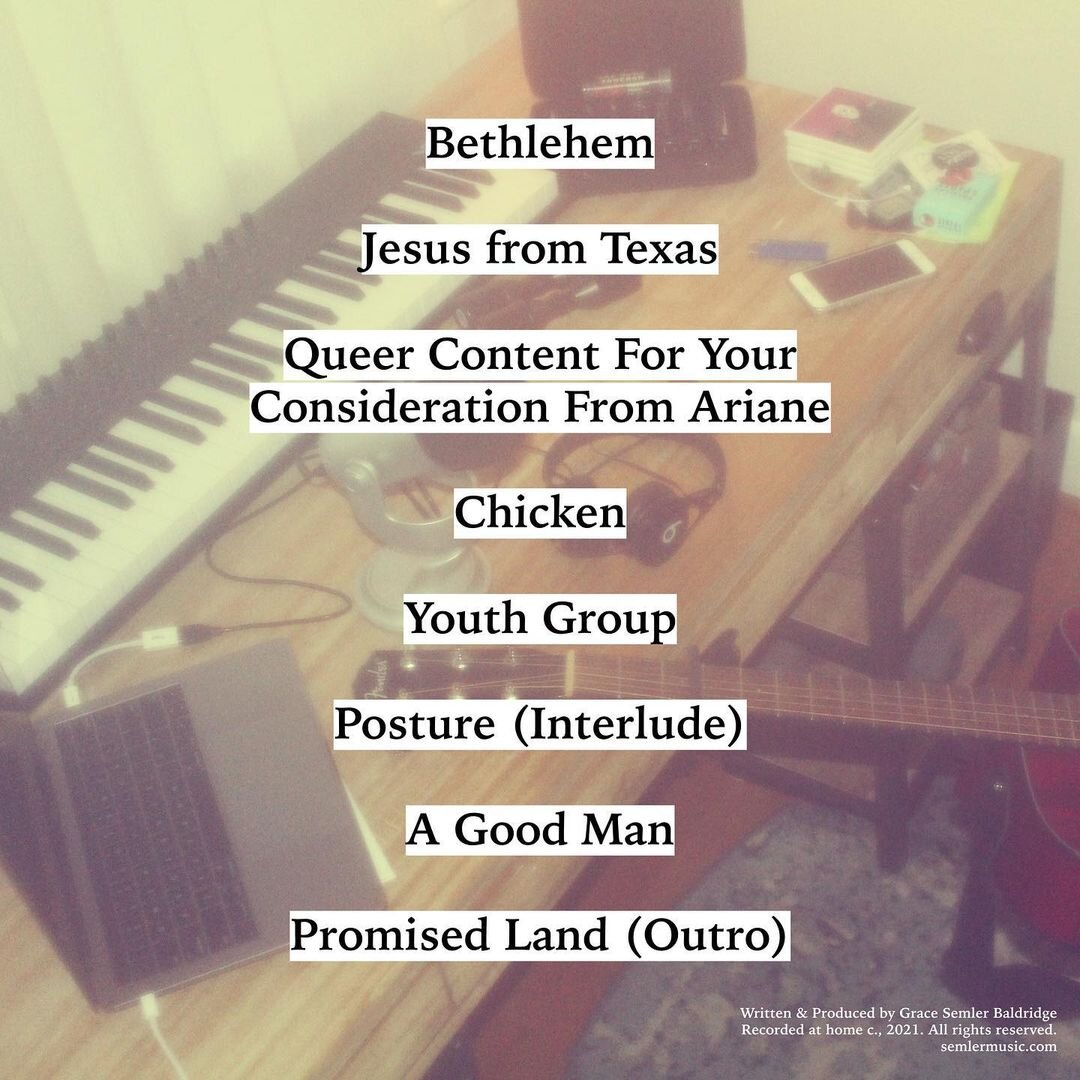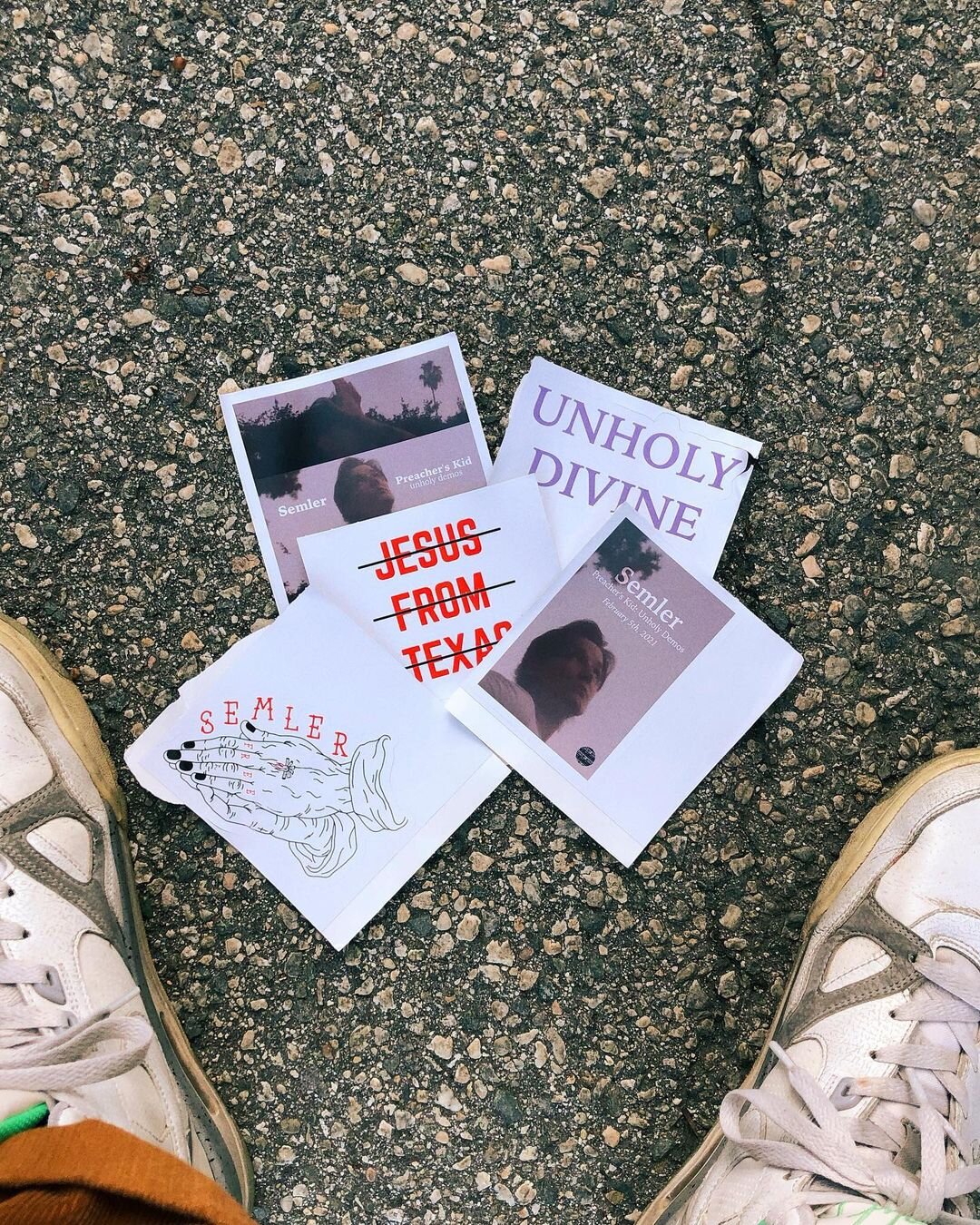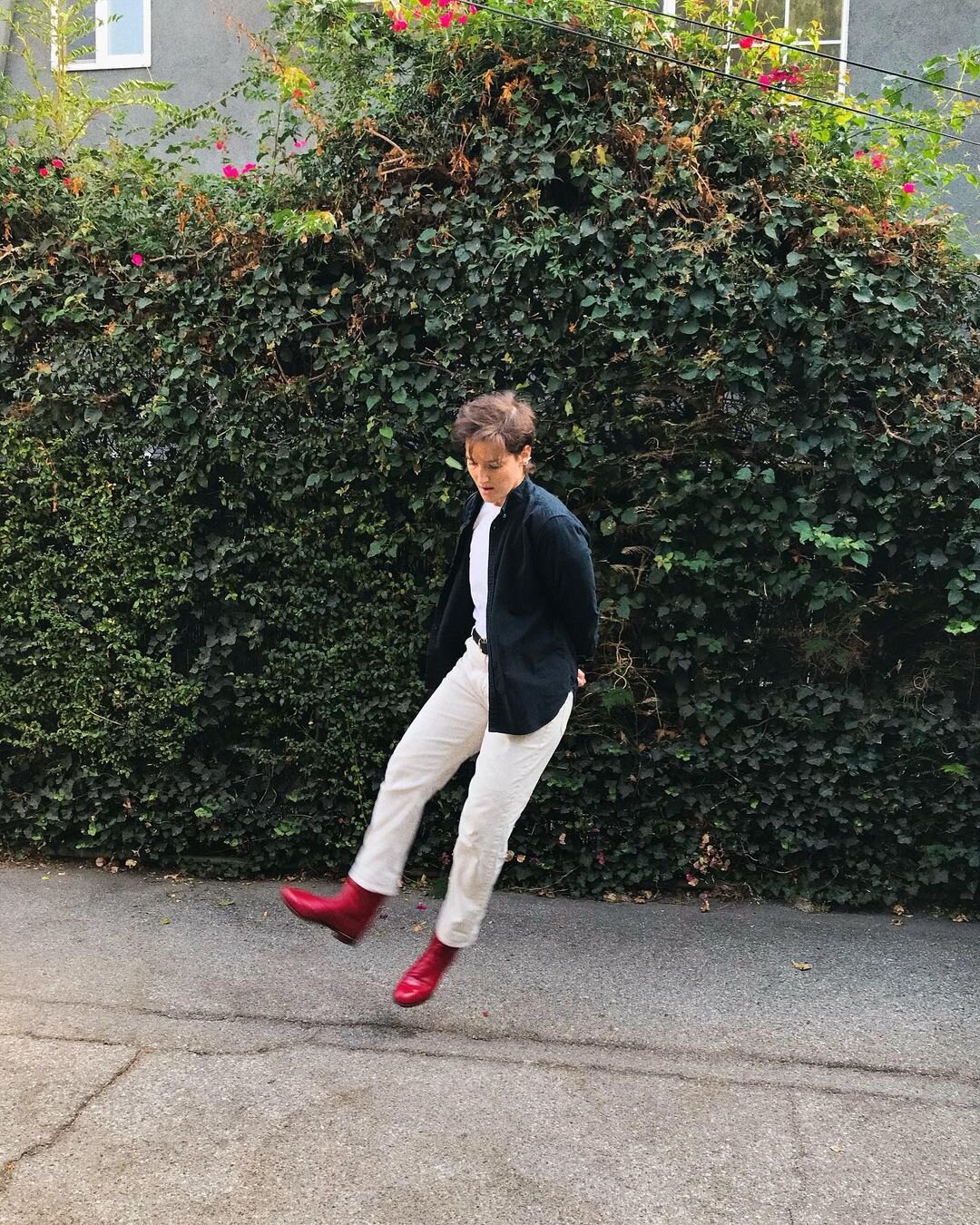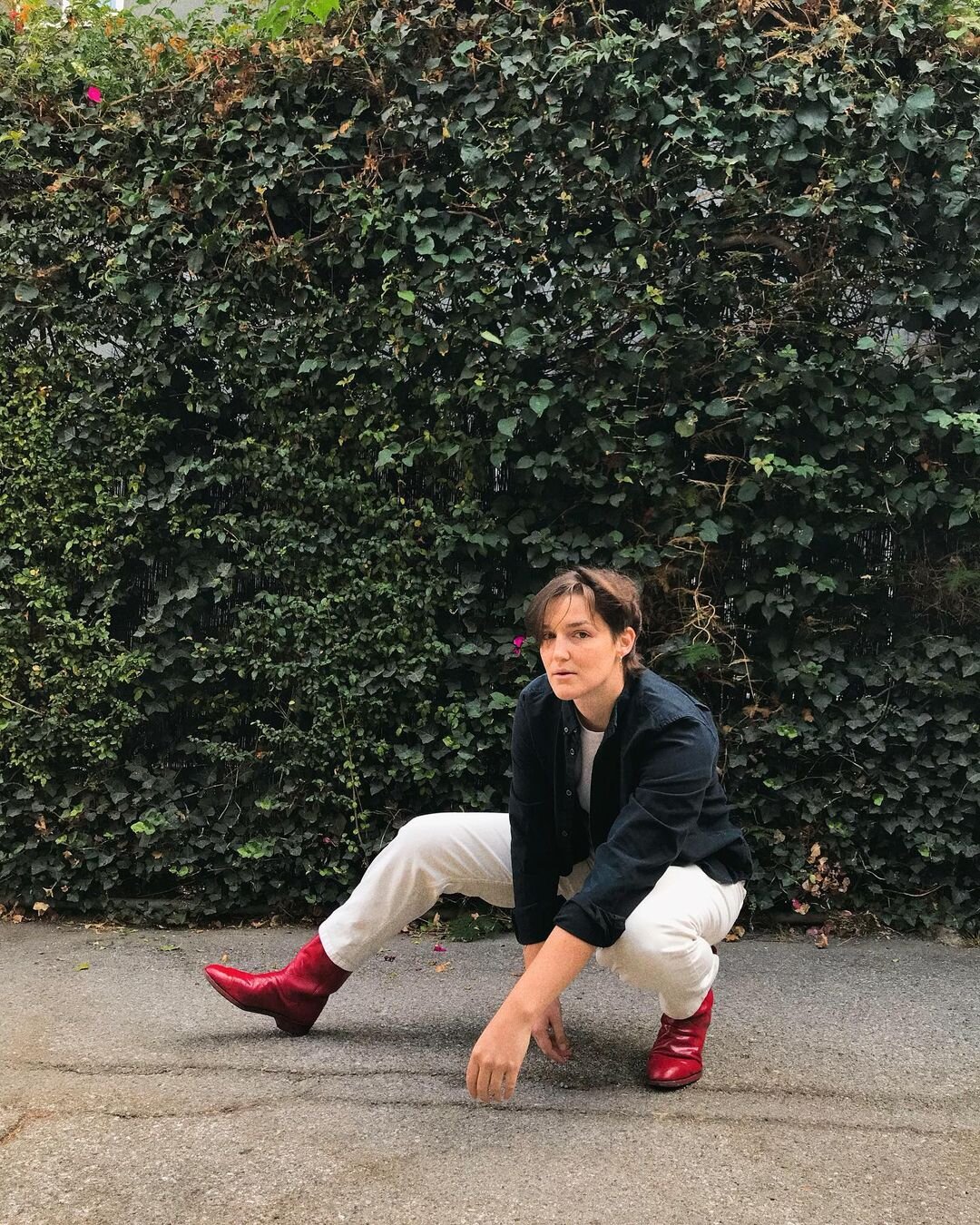What A Terrible Honor Its Been: An Interview with Semler
Growing up steeped in conservative church culture, the first concert I ever went to was for the Christian pop music girl group Point of Grace. My dad, who is named J. C., particularly enjoyed the rapper Carman (who sadly passed away recently!) in part because one of the lyrics in his songs went: “Tell me who’s in the house? J. C.! Jesus Christ is in the house today!” And my mother, of course, loved Amy Grant and dc Talk. In the ‘90s, what Christian family didn’t?
As I reached middle school, however, I fell away from listening to Christian music. Point of Grace, bland and lily-white, couldn’t compete with Spice Girls in terms of catchy tunes and vivid personalities and songs about subjects other than how much they love God. dc Talk never made as good of an album as Jesus Freak, and I felt more drawn to the screaming lyrics of Linkin Park anyway. Amy Grant herself went mainstream, and so did I.
As a teen and preteen, if I listened to any “Christian” music, I tended to prefer Christian-adjacent musicians like P.O.D., Switchfoot, Flyleaf, or Relient K. Now, as an aging hipster millennial, my favorite band is mewithoutYou with their songs about dual rage and passion toward God, the sacred and the profane of life, but they would heavily correct you if you dared to call them a Christian band. Contemporary Christian music on the radio these days, the empty, dead-eyed emotion of a Hillsong worship song, however -- it makes me want to barf. Most progressive Christians I know feel the same way.
And in the entirety of my life, I never knew of a prominent openly LGBTQ Christian musician. I knew of Jennifer Knapp and Trey Pearson, who left Christian music when they came out. But becoming an actual LGBTQ musician in today’s tightly controlled, horribly sanitized, overly repetitive, behind-the-times, extremely conservative contemporary Christian music industry? I couldn’t imagine that.
Until Grace Baldridge, who goes by the stage name Semler, hit number one on the Christian music charts in February on iTunes after releasing an album in that category. She even got a tattoo in honor of the accomplishment.
Her album Preacher’s Kid is available on iTunes and Spotify, and I am literally begging you to listen to it. Especially if you grew up in a church culture. ESPECIALLY ESPECIALLY if you’re LGBTQ+. There won’t be any sanitized content here: the album has a Parental Advisory sticker on it.
Semler was, you might imagine, a preacher’s kid. More specifically, she was the daughter of an Episcopalian pastor. And while that might have shielded her from some of the more painful theology that those of us who consider ourselves exvangelicals were exposed to, she had her fair share of religious bullshit like the rest of us did. And I was lucky enough to get to talk to her about it. The breadth and ease at which she was able to speak about sensitive issues in regard to both her music and growing up queer in a church context was really stunning, and she’s exactly the sort of person who the Christian music industry should be having a conversation about right now.
(This interview was edited for length.)
So I wanted to talk to you about your new album and how you’re hacking the Christian music charts.
It's all happening in real time.
I hope you're still reeling in all of the success of everything.
Honestly, it's been kind of a whirlwind. I haven't really had much time to pause and reflect on things. But when I do, it has been very overwhelming in a very positive sense. And, I don't know, I'm very much in the mode of like, what happens next? It just feels like uncharted territory. So I'm just very excited and eager to get back to writing again, too. That's something that's been on my mind a lot recently.
You're one of those musical artists who really took pandemic time and was like, “This is my world now.”
I don't know if it was intentional. When lockdown started, I was so like, uninspired and bored and just feeling pretty lethargic, which I still obviously feel a lot. But when I downloaded TikTok it was kind of a turning point. Everyone is just creating there and I had a really positive experience on the app. I kind of wanted to join a little bit. And so I started putting out my music a little bit more freely on TikTok, and then eventually just started writing the project that became Preacher's Kid through finding the type of hashtags like exvangelical and progressive Christian hashtags. I just started sort of writing to that and almost sort of wanting to toss my hat in the ring because I loved what everyone was putting out there. And I wanted to sort of share my own story too.
I listened to some of your older albums, in addition to your new one, so I would say your new one, Preacher's Kid is...gosh, this is cliche, it's a lot darker. Maybe? Definitely. Yeah. I really like it. It makes it better. It's like a Christian music album with big Lamentations vibes.
Yeah.
For me, not only is the theology and politics of most contemporary Christian music is like… bleh, but it's not very good. I don't care for most of it. It never felt very authentic or human. It just doesn’t seem like anything bad ever happens in contemporary Christian music. Nothing.
Obviously I think there's a space for really encouraging, optimistic, purely joyful music in any genre. But I thought that is very limiting because anyone of any faith expression has experienced doubt and hardship and sorrow and anger towards a creator if that's what you believe in. And I think that by censoring that type of expression, you're really limiting how much you are validating other people because then you're a Christian listening to this radio show. Because I've been in this position where you are just sort of like, “Is there something wrong with me? Like why? I'm just not as joyful all the time as seemingly the people on this radio station.” So I think there is room for a diversity of perspective and lived experience and how we talk about that in music. And so Preacher’s Kid is definitely a darker reflection of my past musical efforts, and I think that it is me at my wit's end in some regard.
It’s the most, by far the most honest and specific songwriting I've ever done, because I think I was just at this point in lockdown of just throwing my hands up and being like, “Fuck, I don't know what to do. I'm just, I feel really lost and I'm unpacking certain traumas that I haven't dealt with before. And just being like, I can't censor this. I can't make this sound prettier. I just need to record this. I just need to get this out and share it with the world because it's the catharsis of just release.” So it would make sense that the writing from that place would be a little darker than when I was... I can't even remember. I can only imagine what the other stuff of mine that you've heard, but a little less dark.
I just listened to everything that was available on Spotify.
I'm not even sure what I have up there.
It was in order from present to oldest.
Oh, that must have been a wild ride.
Definitely. So do you think you have had success thus far with the album because you categorized it as a Christian album or in spite of it? I know that you released it independently, but it would probably be as equally hard to get this much Christian content on a secular label as it would be to get this much “secular-ish” content on a Christian label. But to me it feels like a Christian album, even if it never gets played on Christian radio.
I think the categorization has been a question mark for other people. But from my perspective, I was writing all of this as meditations on coming through faith as a queer person. So it just felt like I have to list it as a Christian record. And then I started thinking like, this is going to be a little a little strange. My instinct was this is what it's about, like this whole project is about Christianity and toxic Christianity, so it feels like it should belong in the Christian genre. But then after the fact, realizing that is part of why some people are checking it out. Specifically hate listening. I think that if I put this out as a singer-songwriter, indie thing, I don't think I would have had as many hate listeners.
You have hate listeners?
I know that they're out there because I've seen strange reviews of people who definitely listened to the whole EP, but hated it. And which is fine. There’s something about challenging the status quo, which I think by listing it as a Christian project, people really felt like I like I was doing. I also recognize this for other people specifically, like conservative Christian gatekeepers, this is going to get more buzz for them. Because I'm disrupting something, they feel like they have ownership of a religion. I probably would have ruffled less feathers if I had listed it as a singer-songwriter thing. But I also think I would have heard the note from some of my listeners who are not of faith, I think people would have been like, “Oh, this is kind of a Christian record, this is all we're talking about on Preacher’s Kid.” So I think I would have gotten the note either way, and I'm really happy with where it landed, it feels like the best fit for me and I don't really care what other people think..
It's all so good. Do you have a favorite song from the new album?
Hmm, that's really hard. Um...
Which child is your favorite?
My child! I can't I can't say if I have a favorite. But I know that I have to say, if I hadn't written “Jesus From Texas” I don't think I would have written the rest of the record. Because when I finished that song, especially like the last verse, and chorus, and I really started trying to heal these old wounds and just sort of examine things really honestly. It gave me the confidence to do that on other places on the record, so I think that like “Jesus From Texas” was almost like ripping off a Band-Aid that was like, "Okay, if I can talk about this, then what else can I start talking about in my songs?"
Yesterday, I posted a lyric from that song on my Facebook wall.
Cool. Which lyric was it?
“What a terrible honor it's been to learn that my blessings are things you call sins." Probably my favorite.
That was the last thing that part of the song is. I think kind of like what turned the corner for me and writing Preacher's Kid
Well, it's a very very good line.
I'm happy you like it. I really I'm very honored.
So I saw you got the Preacher’s Kid tattoo in honor of hitting number one. Did you and your wife do anything else to celebrate?
We're not drinking until later on in the year. So we got Martinelli's, the apple cider-champagne thing. And honestly, we've just been so busy. I think we've talked about maybe when the dust is settled a little bit, taking a road trip with the dog somewhere and decompressing, but we've kind of been on the go. We haven't really had a special celebration yet, but hopefully that's on the horizon.
So in previous interviews that I read, you said your dad, the Episcopalian preacher, was accepting of you. But I'm a former Pentecostal. I grew up in really hardcore regressive theology. So I was surprised that you still had to deal with church culture bullshit, like mission trips and youth group shit. Because I always assumed Episcopalians were immune to that stuff.
I think my dad thought so too. The project has been like a really great jumping off point for a lot of conversations that when you're a teenager, you don't really want to have with your parents. And now, obviously with this, you kind of have to. I'm really, really fortunate that I did grow up in an affirming household, even though we weren't explicitly like “rainbow flags'' and we weren't as affirming as I would imagine my household will become one day if I have kids. But I never heard homophobic things around the house specifically as related to religion. But my dad, I think, naively and in a way that I think was unexamined, just sort of trusted that was the same across the board for all other Christian contemporary culture.
So all of the media that he would bring home, and then the conferences and the youth retreats, and the breakfasts and the mission trips that were like part of a larger Christian collective, all the churches send their kids to different things—I don't think he was asking questions about like, what is the theology here? I'm sending my kids with you for two weeks, what will my child be taught? Because I think that he kind of sweetly assumed that, you know, it's going to be fine. Because, as a straight cis white dude, he's never experienced any sort of toxic theology pointed at him. With that privilege, he was kind of ignorant to what other people who are different on any spectrum within rigid Christian doctrine might experience.
So I think that's something I want to talk about. If I was not protected from regressive theology and teachings from Christians that made me hate myself and feel so ashamed, and I couldn't talk to my parents about certain things, but I grew up in an affirming household… what's to say about people who didn't have that? I had a foundation, and eventually I came out and I was accepted. That was huge. But I’m still writing fucking songs about all the shit that went on behind my parents’ back in the name of the same guy that I was going to church with them praying to, and it really messes with your head. I think that's something that I would love to be more transparent about.
I think for parents, it's important to ask specific questions. If you're choosing to send your kid to a faith-based, or any sort of youth event, like -- it's going to be messy regardless, because being a teenager is so messy and confusing -- but I think you need to ask specific questions of leadership. And I'll say specifically Christian leadership, if that's where you're sending your kid to, ask, “What are you going to teach my kid? And what's not going to be okay? What jokes are you going to call out and what things are going to be allowed?” He just didn't ask. I don't think he knew to ask.
Wow. That makes me think. I have kids also and we go to a progressive church. But you know, that's not enough. It makes me definitely want to be more cognizant of the sort of life that I give to them. They're not old enough for youth retreats -- to me those were all bad, but I came from an explicitly conservative, evangelical culture, so it was all bad anyway. Do you go to any church or anything?
I do. I mean, obviously, not now. But yeah, my wife and I attend a church, an Episcopal-like small church by the beach. We like watching the Middle Church services online with Reverend Jackie Lewis. I actually met her through doing my documentary series. I just really respect her as a teacher. She's always preaching about social justice being the DNA of Christianity and serving others and having a heart for healing the world through activism. So those are like my churches, but I'm also the worst person to go to church, because I just grew up in church forever. So I know the bells and whistles. I’m kind of an annoying parishioner, I would think.
Has anyone from the Christian music industry reached out to you? You don't have to say who, but I guess I'm just curious as to what kind of response you're getting. I just feel like obviously there's closeted LGBTQ people in Christian music industries, or definitely even more closeted allies who could probably relate to your entire album. But then of course, they're also too scared to do anything about it themselves.
I've had people who've reached out to me publicly who come out of CCM, and that's been really cool -- like people whose music I totally grew up listening to. As far as people reaching out, there have been some people from CCM, who have reached out to me privately, but not wanting to say too much at this point. There has been some discretionary support from CCM. I have not been reached out to by any major Christian labels or anything like that. The heavy hitters that you're thinking of like have not slid into my DMs.
Next year's presenter of the Dove Awards!
Oh my God, my dream. There hasn't been anything major that I'm sitting on. I think that's actually been a bit frustrating in and of itself, because I think if I was just a good Christian girl and I independently released an EP called Preacher's Kid and it was all about how much I loved being a preacher's kid and growing up in the church was hunky-dory and it went number one on iTunes, I would be the CCM darling. They'd be obsessed with it. But because I'm talking about something that's difficult, that's just as true as some of the songs that they're putting out there -- it's kind of a form of gaslighting to be ignored. Because I know you see me. I know you know I'm here. But now I'm determined and very motivated to continue poking at this because there are so many people who have been ignored by this industry, and they've been able to act beyond reproach, and I don't think that's okay.
If I crack Billboard, what do we need to do as a collective for you to acknowledge that there are other Christian stories that you are not telling in an entire genre of music? It honestly serves as motivation for me because I know that we are many, and that our stories are abundant, and we're starting to find each other through social media, we were told that we would be isolated, and that there would never find fulfillment, and that there's something wrong with us because we couldn't fit into these like rigid structures. We're finding that there's another way, and we're all doing okay, and I want to keep going and plugging away at that, because I think that this is just the beginning. I think that there's a lot of power and representation. I want to just keep showing up -- they're not inviting us, but I'm just going to keep showing up to their party.
You're definitely not going to be the last LGBTQ Christian music artist.
Yeah, I hope not. Some people have reached out to me outside of CCM like, “I've been writing about this and I never thought that I'd be able to submit it for consideration in the Christian genre, and now I want to try.” I'm just like, “Go go go!” We can rush the gates in some way. They can't keep us all out. I think that they recognize that we have the momentum and the energy because we are the ones who have never been heard. There's an interest in our stories. There's an energy surrounding this music that I don't think they're packing right now. No one has been like “Wow, what innovative sounds are coming out of CCM!” No, you're not saying anything new. You don't want to challenge anything. So I'm excited about what's next.
I haven’t listened to most Christian music in a long time. At a certain point, the music itself was just boring no matter what I believed or thought.
They're always three years sonically behind whatever is on like the mainstream charts, because they want to play it so safe. There's nothing groundbreaking coming out of Christian music. And I'm not saying that’s what Preacher's Kid did. This isn't a groundbreaking record, I recorded it on a USB mic! I’m just saying, thematically, I am talking about ideas that you haven't heard in Christian music before, and I think that they could use some of that energy. If they're not going to search for deeper inspiration, then I think other people should and they should submit it in the Christian category. And we should all just blow up and go off. These people want to hear this. They want to feel represented.
I watched some of the series you did last year, State of Grace. I'm openly polyamorous and bisexual, leftist, all this stuff. I could not deal with asking evangelicals in person what they think of me and my life. I would get mad. But when you did it, your responses were… they're so Christ-like! How did you handle that? Do you think you changed anybody's minds?
I don't know. I'm not sure if I've changed anybody's minds. It’s not something prescriptive. But a lot of times in interviews, I try to be quite generous with my subjects. I know that sharing your heart on camera is vulnerable. Right? Right. I want them to feel like I'm not going to make fun of you, but we are probably going to disagree. But I'm not going to tease you. I don't want you to feel like I'm antagonizing you. And that's just me, for my own mental well-being. There are other people that can conduct interviews in a really different way and have an incredible response and look at issues differently. But for me, I'm a little Enneagram 9. I'm very sensitive. I really wanted us all to be vulnerable, and so for us to do that, and for me to offer you that as well, we need to not yell.
That's truly just how I am. I don't know if I change anyone's minds. But I've kept in touch with a lot of people I've interviewed who I've disagreed with. Not everyone, but many of them. If I were to see them around, if they were in town I’d have them come over for dinner, that type of thing. I mean, not obviously now. I just try to stay a visible example. So I don't know if I'm changing any minds or anything, but I know that like you're gonna think of me next time you hear someone say something about this group. I want to serve as a friend to you and be there for you. So when someone is saying something shitty about me, you might consider something like, “Oh, no, I know Grace!” I haven't thought it through; it could be a really shitty method. I'm not sure. But I think that just for so many people, it's so easy to hate a group that you don't know. And I, for better or for worse, have allowed myself sometimes to be vulnerable, to be that person to someone so that you'll consider what the implications are. I like figuring it out.
Or like in “Jesus From Texas” where your friend, you know, if their kid comes out, maybe they'll talk to you.
Yeah, yeah. Honestly, fingers crossed.
I always wondered about that. I left a really toxic church environment. And sometimes I wonder, if I'm open about my life, I hope these kids would know where to find me.
I think that's huge. BecauseI really think about a parent down the line are at their wit's end because their kid has said something about themselves that they don't understand and they're so afraid, and in that moment, they can either go and talk to a regressive church leader who's going to really be abusive to this kid, right? And just cause them to hate themselves. But what if they knew that someone was available to them, who's happy, and who is fine and went through some things, but can speak to you from a lived experience? Like I'm hoping that a parent in that situation would choose the latter.
That's a very good answer. So specifically, how do you think fellow progressive Christians can make Christianity a better and more welcoming place for LGBTQ Christians? Or anybody, really?
That's a great question.
Because we know there's always gonna be Christians who don't have welcoming spaces for these people.
Hmm. I think the first step honestly is not ignoring harm that's been caused. I think that is probably the first step to letting other people know. Rebranding Christianity in the U. S. is first acknowledging the harm and history that has been done in the name of Christianity, and dismantling those systems of oppression that have kept people down, for so long, in the name of God. I think that acknowledging that and beginning to be part of that work, and staying educated, is probably the first step before you can move forward and start talking about how awesome Christianity is.
We first need to acknowledge how awful Christianity has been historically, and I think that that goes hand in hand with deconstruction, and really figuring out how we got here. It's something I think about all the time. Is the reason why I pray to God because I was programmed as a child to do that? Being open with these conversations, allowing space for them, is something that we don't see from the strongholds of Christianity, if you will. I think that being available to showing people that there's a different way to embark on this faith is something that we should explore. I don't know, you probably have better answers than I do. Isn't that the mystery of like, where do we go from here?
I think even in progressive Christianity, it's hard. Sometimes people are like, well, not all Christians are like that. And you're missing the point. It doesn't matter. People are hurting because of my religion!
Yeah.
Do you have any more projects coming up that you're excited about? About where to go from here?
There's a lot that I'm excited about. I've been writing. I've been writing a lot of music, and I'm hoping in March, I can have some dedicated time to like fleshing out some of these ideas. And I'm also working on this -- this is an exclusive that I'm telling you, but there is a remix in the works for “Jesus From Texas.” It's gonna still be quite true to the original, but a friend of mine that I know through TikTok and I are collaborating on something. Sort of like reconfiguring the song, dressing it up in a different type of way and exploring other things from within that same theme. So I'm excited for that, and I'm really hopeful to record a full-length album and get a tour going in the next year. That's something that I really want.
I'm not a big concertgoer, but I'm ready to go.
Yes. Let's do it. I think it would be a fun show, I think because it'd be so many like-minded people that have never really gathered in the same space before. So I think we'd all have a lot of fun.
Just like that, Semler is able to foresee (and pioneer) a world where LGBTQ people can not only hit number one on the Christian music charts, but exist in the Christian world, and in all kinds of churches, and every sort of Christian space they've tried to keep us from entering. This is exactly how it should have been all along. Those of us who have been part of progressive Christianity for a while can easily forget that there are still people trapped in fundamentalism who need us to reach out and pull them up out of the water they are drowning in, and it’s clear that people like Semler—of course her first name would be Grace—is out there doing exactly that.
Some of us, me included, have run screaming from mainstream Christianity, never to look back. But perhaps it really is more effective to claw our way back with weapons of love and creativity and radical honesty in our hands, with an army of people doing the same, and lay siege to the foundations of the toxic, stagnant beliefs that have harmed so many people for so long. If we can hack the Christian contemporary music charts, we can probably hack American Christianity itself.
You can find all of Semler’s social media links here, including her new album Preacher’s Kid. All photos listed here from Semler’s Instagram account @gracebaldridge

